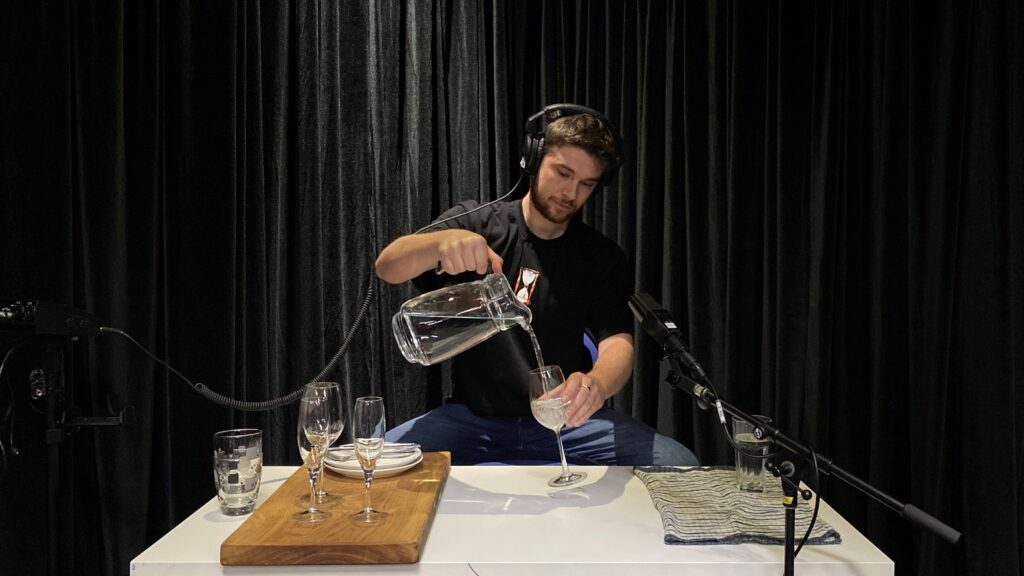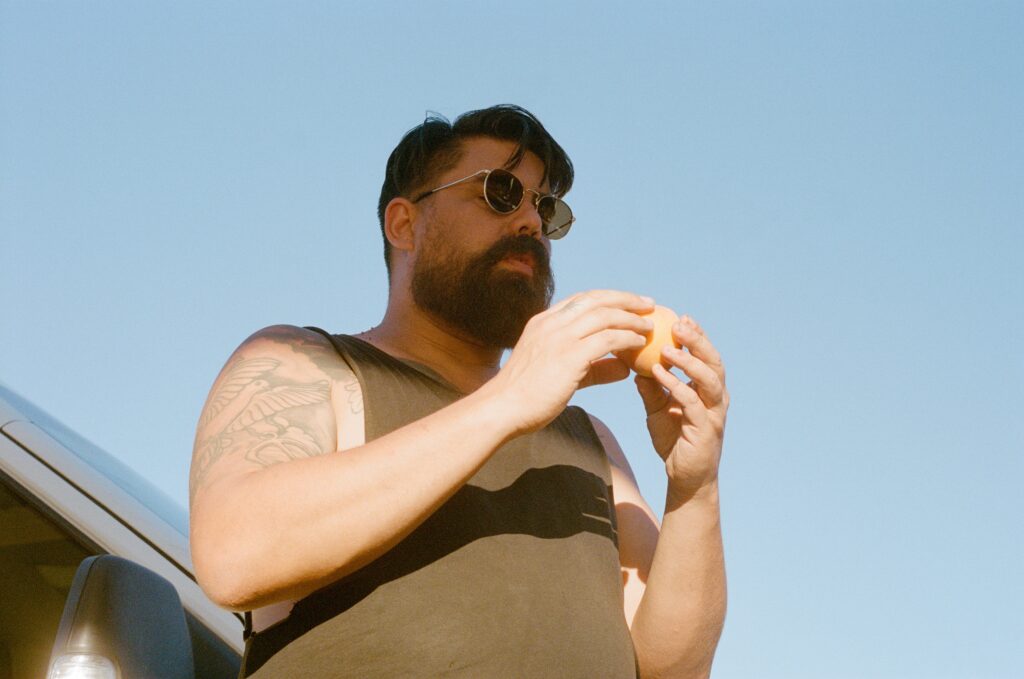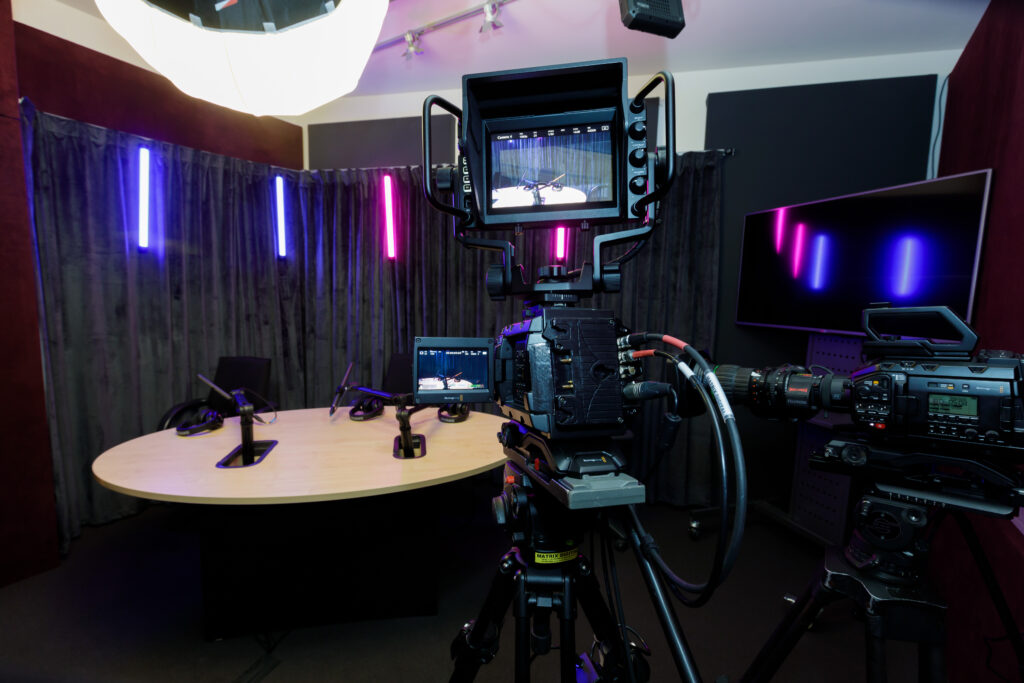Rosa: Robbie, how did you go about getting employed at Matrix?
Robbie: First of all I just want to say – big fan of the pod, thanks for having me on *laughs*.
I mean, getting a job like this is sort of a life goal; it’s a life dream right? You focus all of your energy towards that, and you do what you can to try and put yourself in the right places, but at the end of the day often it’s just luck.
Somebody sent me a screenshot of a Facebook group where Simon had posted asking for an engineer. So, I saw that, emailed in and I had just the right amount of experience to get my foot in the door. So yeah, you just do your best and hope…
Rosa: Yeah, what is your background, what inspired you to work in this industry?
Robbie: I’ve always played music. I grew up playing guitar and then started writing songs. I played a lot of gigs throughout high school; we had a band that played the Bay of Islands Jazz and Blues Festival every year, we did loads of festivals and private gigs up in Whangārei. We produced an EP which is really really bad, but you kind of have to have those projects early on where you’re just trying everything out, and using Mixcraft and just awful programmes without knowing how gain-structure works.
So yeah, I just worked through all that, and never felt like I was getting close to good. Which I feel is a good place to be. If you’re feeling like every day that you’re working on something you are learning and you are getting further down the track, then you are on a good track, right? If you get to the end of somewhere and you feel like you’ve finished, then what are you doing? So, definitely constantly learning and the ‘it’s hard, but that’s a good thing’ is the headspace that kept me running through with music.
I went to Massey and did the Commercial Music course there, more as a performer and writer, but we did a lot of technical stuff as well. Then I produced an album with my band Tin Palace. We released that, and was happy enough with it that I felt motivated to keep going, but also wanted to fix a lot of stuff and keep learning and keep getting better. So that motivation once again kept me rolling; kept me wanting to work in the industry.
Rosa: Awesome! What’s your favourite kind of job to work on?
Robbie: Hmmm, I definitely enjoy music. That session we did a couple of weekends ago with a band called Common Unity from Ohakune. That was a really cool session cause the songs were well written and they were well practised, but they also had a lot of space and they were really open to hearing ideas, from me, and from Phill and Simon when they came in on the session. So that was really fun to have a band and to be able to work with them and write some parts and help them to hone in on those songs.
Rosa: Yeah for sure! Can you tell us a bit more about your musical pursuits outside of Matrix, you mentioned Tin Palace.
Robbie: Yeah, I do songwriting with Tin Palace, we have a practice space and we play some gigs. We aren’t huge on the gigs at the moment just because I was falling out of love a little bit with gigs after doing them for so long and really grinding. I’ve probably done somewhere between two and three hundred shows and I was just getting a little bit like – this is the same thing over and over again. So I wanted to focus a bit more on the recorded stuff and hone in on the craft of songwriting and production. That’s where I am at the moment, trying to figure that stuff out without losing too much momentum.
Rosa: Yeah, I mean there’s a lot to be said for honing in on that space and really giving it the time that it needs.
Robbie: Yeah, there’s a huge amount to learn and to try to perfect with production and songwriting. It’s a massively deep well that can be scary because sometimes you think you’re there and then you realise that you’ve only just scratched the surface.
Rosa: How does being a performer affect the way that you approach engineering?
Robbie: I think that something I take with me being a technician and a performer is that often the way to fix something is at the source rather than trying to use trickery to fix it down the line. So, if you’re in a music session and something isn’t working or something isn’t feeling right, try to fix it at the time when you have all of the musicians present and then you can change the way that the keyboardist is accenting the notes, or change the way a person is singing in order to get the sound that you want. Rather than later down the track having to try and fix it. I think that’s a super helpful thing about doing both performing and technical stuff.
Rosa: Yeah, for sure – what would you say is the best part about working here at Matrix Digital?
Robbie: Ah, not having a ‘real’ job, and working hard on something that you care about. I’ve had a bunch of other jobs, like – I’ve worked in hospitality, in quite a high-end restaurant for a while and my boss there kept asking me to care more, and I just couldn’t. I just honestly couldn’t care less about the food industry. Working here, when you make a mistake or when you feel like you don’t know enough about something, having the actual drive to learn more and to try to get better is massive.
I think the biggest part of living your dream is that you are actually interested in what you are doing every day.
Simon: I think that’s the most real job. When you work hard and care about something. That’s the definition of a real job as far as I’m concerned.
Robbie: Yeah, 100%. It doesn’t just feel like you are wasting your hours.
Rosa: Could you describe an average day at Matrix in three words?
Robbie: Coffee. Press. Record.



